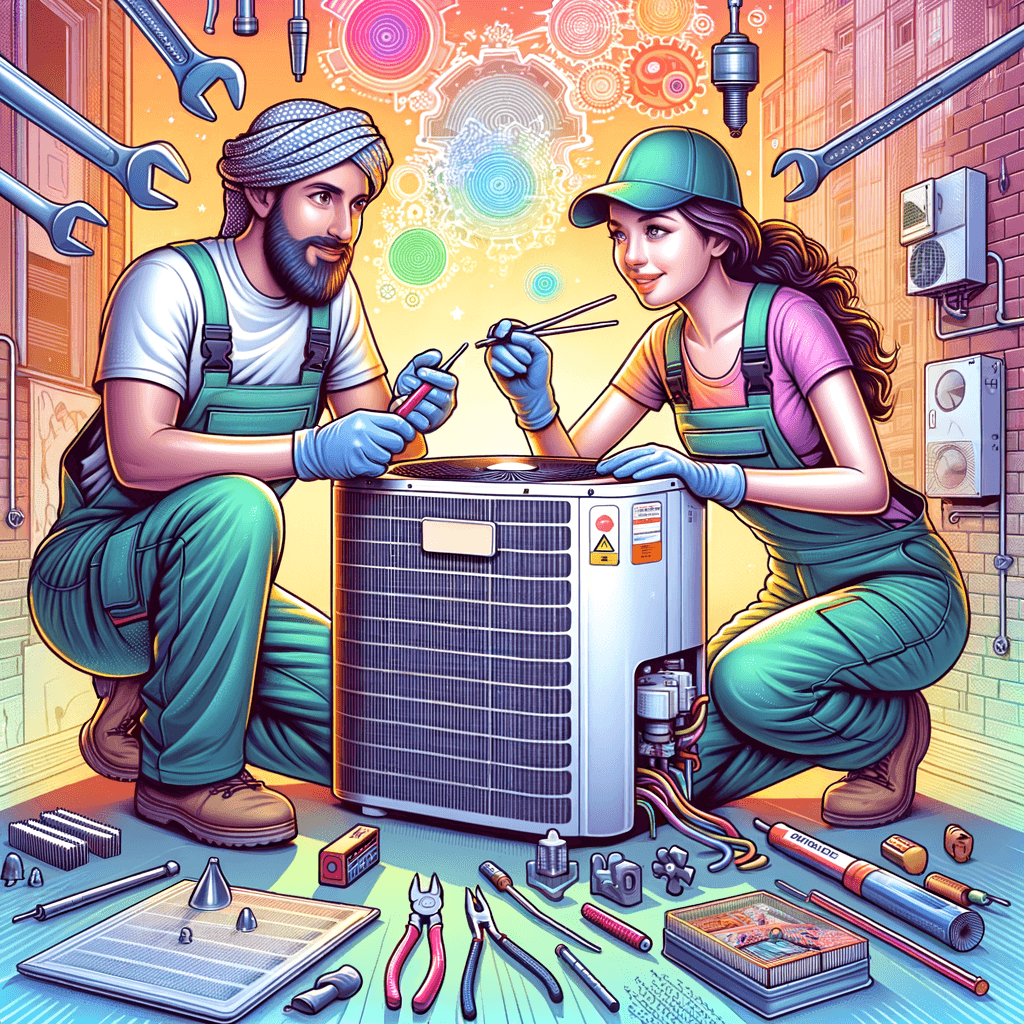
Mastering Air Conditioner Coil Maintenance: Techniques for Efficiency and Longevity
By Total Care Air Conditioning Fri Oct 03 20258 minutes

The Crucial Role of Coils in Air Conditioning Systems
Air conditioner coils—both evaporator and condenser—are pivotal to the cooling cycle, facilitating heat exchange and directly impacting system efficiency. Neglected coils can cause decreased cooling performance, higher energy consumption, and premature equipment failure. Understanding their function is the first step toward optimal maintenance.Common Coil Issues and Their Impact on Performance
Dirty or damaged coils can lead to restricted airflow, reduced heat transfer, and increased system strain. These issues often manifest as uneven cooling, longer run times, and higher utility bills. Proactive identification and resolution are essential to prevent costly repairs and discomfort during peak seasons.- Frost accumulation on evaporator coils
- Dust and debris buildup on condenser coils
- Corrosion and refrigerant leaks
- Reduced airflow and pressure drops
- System overheating and short cycling
Step-by-Step Coil Cleaning Techniques for Homeowners
While professional servicing is recommended for deep cleaning, regular light maintenance by homeowners can significantly improve coil performance. Always ensure the unit is powered off before beginning any cleaning procedure.- Remove visible debris with a soft brush or vacuum attachment
- Apply a no-rinse coil cleaner to break down grime
- Gently rinse condenser coils with low-pressure water (if accessible)
- Inspect for bent fins and straighten them with a fin comb
- Clear surrounding vegetation and obstructions from outdoor units
“Consistent coil care is the linchpin of air conditioning efficiency and longevity—overlooking it is the fastest way to compromise your comfort and your wallet.”
Professional Maintenance: When to Call the Experts
Certain coil issues, such as heavy corrosion, refrigerant leaks, or persistent icing, require the expertise of licensed HVAC technicians. Annual professional inspections ensure thorough cleaning, accurate diagnostics, and the safe handling of refrigerants, preserving both system performance and warranty coverage.Comparing Coil Materials: Copper vs. Aluminum
The choice of coil material influences maintenance needs and system durability. Copper coils offer superior thermal conductivity and ease of repair, while aluminum coils are more resistant to corrosion and generally more affordable. Understanding these differences can guide your maintenance strategy and future upgrade decisions.| Property | Copper Coils | Aluminum Coils |
| Thermal Conductivity | Excellent | Good |
| Corrosion Resistance | Moderate | High |
| Repairability | Easy | Challenging |
| Cost | Higher | Lower |
Best Practices for Preventive Coil Maintenance
Integrating coil care into your seasonal HVAC routine not only enhances efficiency but also extends the lifespan of your air conditioning system. Preventive measures reduce the risk of emergency breakdowns and maintain consistent indoor comfort.- Schedule biannual coil inspections (spring and fall)
- Replace or clean air filters monthly
- Maintain adequate clearance around outdoor units
- Monitor for unusual noises or cooling inconsistencies
- Keep drainage systems clear to prevent moisture buildup
Frequently Asked Questions About AC Coil Maintenance
- How often should I clean my AC coils? – Light cleaning every 1-2 months; professional service annually.
- Can dirty coils cause my air conditioner to freeze up? – Yes, restricted airflow from dirty coils often leads to icing.
- Is it safe to use household cleaners on coils? – Only use cleaners specifically formulated for AC coils to avoid damage.
- What are signs my coils need attention? – Reduced cooling, higher bills, or visible dirt and frost are key indicators.